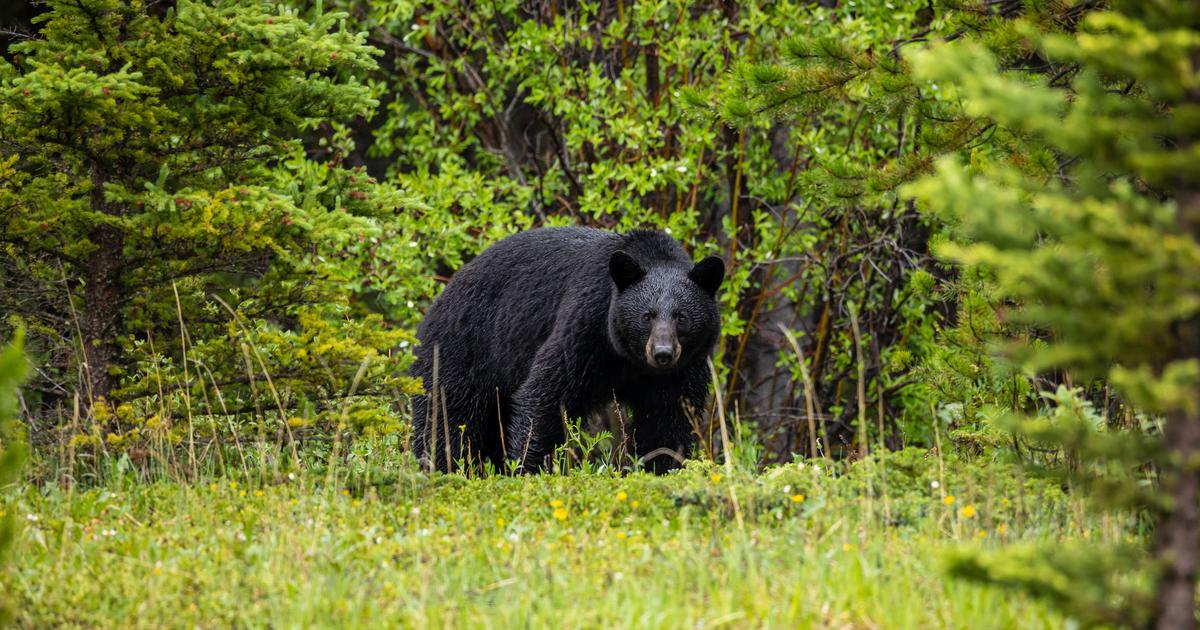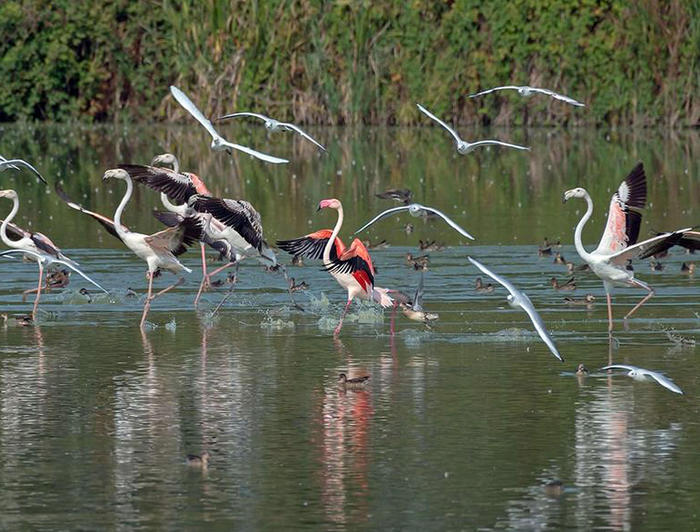Neil vigdor
07/23/2021 16:00
Clarín.com
The New York Times International Weekly
Updated 07/23/2021 4:00 PM
He was sleep deprived and almost out of ammo, alone in the Alaskan wilderness.
Well,
he wasn't
really
alone.
For several nights in a row, the man had repulsed the tenacious advances of a grizzly bear that had attacked him a few days earlier at a mining camp about 40 miles from Nome.
There was no way to call for help.
But then help found him.
A mining camp near Nome, Alaska, where a Coast Guard helicopter crew rescued the man.
Photo United States Coast Guard
On Friday, while en route to a mission, the crew of a Coast Guard helicopter saw the man waving both hands in the air,
a
widely recognized
distress signal
, the helicopter pilot said.
SOS and "help me" were scrawled on the tin roof of a shack.
The door to the hut had been torn off.
The crew took the man to Nome for treatment for the torso bruises and a non-life-threatening leg injury, according to the Coast Guard.
Thus ended a week-long ordeal that could go through a sequel to
"The Revenant,"
in which
Leonardo DiCaprio
was mutilated by a computer-generated grizzly bear.
"At some point, a bear had dragged him into the river," Lieutenant Commander Jared Carbajal, one of the Coast Guard helicopter pilots, said in an interview Wednesday.
"He had a gun. He said the bear
came back every night
and he hadn't slept in days."
The Coast Guard did not identify the man, who, according to rescuers, was in his 50s or 60s and had been in the cabin since July 12 at the small mining operation.
It was unclear how the man got to the remote camp, which has no mobile phone service and is in a river drainage area.
Carbajal said the Coast Guard's MH-60 Jayhawk helicopter had changed course by about a mile to avoid some clouds when something caught the eye of its co-pilot.
"He said, 'Look, there's a guy down there and he's saying hello to us,'" Carbajal said.
"I said, 'Are you waving with one hand or two?'
The answer:
with two hands.
"I said hey, that's usually a sign of distress," the pilot recalled telling the other three members of the helicopter crew.
Lt. Gen. AJ Hammac, the 35-year-old co-pilot, said in an interview Wednesday that he saw the man stumble out of his hut.
It was a curious sight for him.
Hammac is based on Cape Cod in Massachusetts and is spending two weeks in Alaska for the Coast Guard.
"We don't really run into people in the middle of nowhere," Hammac said.
"He was like fighting. When we arrived, he was on all fours waving a white flag."
Hammac said the man's leg was bandaged.
"It definitely looked like it had been out there for a while," he said.
Rick Green, a spokesman for the Alaska Department of Fish and Game, said in an email Wednesday that grizzly bears
were prevalent
in the area from which the man had been rescued, especially during this time of year.
The department had no additional information on the attack and did not say whether it was investigating the encounter.
According to a 2019 report from Alaska health authorities,
68 people
in the state were hospitalized for injuries sustained in 66 bear attacks between 2000 and 2017.
Ten people died as a result of bear attacks during that period.
Petty Officer 1st Class Ali Blackburn, a spokeswoman for the Alaska Coast Guard, said in an interview Wednesday that it was
unusual
for one person to have multiple encounters with the same bear.
He said the man's situation had become increasingly dire.
"He only had two cartridges left," he said of his ammunition.
"I imagine he's going to be a bit nuts after not having slept for so long."
The meeting served to remember the importance of carrying an emergency beacon or a satellite phone or a device to send text messages, according to the Coast Guard.
Carbajal, 37, a Coast Guard pilot since 2009, said he had never been struck by someone in need of rescue before.
It took rescuers about 15 minutes to get the man to Nome, where he said the man insisted on walking himself to a waiting ambulance.
"You could tell he was starting to lose his adrenaline, I think, and he started to realize what had happened," he said.
"I didn't want to get on the stretcher."
The Coast Guard helicopter had flown from Kotzebue to Nome, where the crew had been assigned the next day to take a team of scientists to search for dead whales, walruses and seals off the coast.
"If we had been in the next river valley," Carbajal said, "we would have totally lost it."
c.2021 The New York Times Company
Look also
Modern Love: The Bear Chased Us;
then we chase the bear
A teenager, a frigid night, and an incredible survival story








